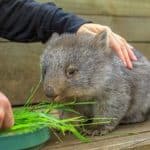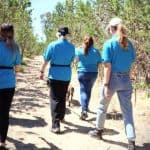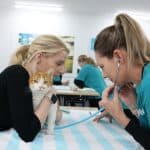I want a job working with animals!
Working with animals is not just limited to one field, such as veterinary nursing. It involves a diverse range of rewarding roles and career pathways to cater for all interests, skill levels and abilities. There will no doubt be an ideal job out there for those of you who consider yourselves true animal lovers and environmentalists, through to those of you in business and commercial enterprises, farming, or agriculture.
Here are the top 6 fields for jobs with animals in Australia. They include and are not limited to:
1. Careers relating to caring for pets
Veterinary Nurse
About the field: Working in the veterinary industry is one of the most exciting career pathways you can undertake. Working closely alongside veterinarians and specialists such as experts in the fields of behaviour, medicine and surgery, you will truly be making a difference in the lives of your patients and their owners through your role of patient care and client education.
Roles available: The role of a veterinary nurse is not only very diverse, but it is also vital to the functioning of a hospital. It can vary from clinical work in a busy small animal general practice, or specialist nursing in the fields of emergency and critical care, dermatology, medicine, surgery, imaging, dentistry, exotics, or zoo medicine. It can also involve the care of equine patients and those within the production animal industry both within a clinic setting or out in the field or farm. Veterinary nurses play a valuable role in shelter medicine for charities and local councils, so you can help to save the lives of pets in need of a home. There are positions available in animal hydrotherapy and physiotherapy. You can extend your role into sales and management, education of veterinary staff, or as a representative for pet food or pharmaceutical companies or medical wholesalers. For those dedicated to doing so, this qualification can develop further into nursing at Diploma level or into a science-based research/laboratory role or even a career as a veterinary surgeon.
For more information visit What qualification do you need to become a veterinary nurse?
Specialist nursing in the fields of:
- Emergency and Critical Care
- Dermatology
- Medicine
- Surgery
- Imaging
- Dentistry
- Exotics or Zoo medicine
Specific care:
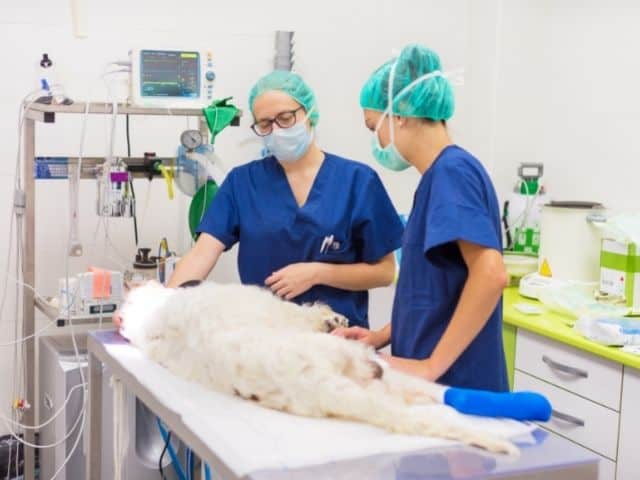
- Working with equine patients and those in the production animal industry both within a clinic setting or out in the field or farm
- In shelter medicine for charities and local councils, so you can help to save the lives of pets in need of a home
- In animal hydrotherapy and physiotherapy
Alternative careers:
- In a Practice Management and Leadership role,
- Lecturing and teaching like-minded veterinary support staff,
- In a laboratory
- Sales representatives for pet food, pharmaceutical companies or medical wholesalers
Best career/education pathway: Although finishing secondary school may seem like an ideal pathway into this career, it is fair to say many of our vet nursing students come from a great diverse range of backgrounds, of all ages and education status, both from the city and rurally.
Regardless of your background to become a qualified veterinary nurse you will need to complete ACM40418 Certificate IV in Veterinary Nursing. To be eligible to commence the Certificate IV in Veterinary Nursing course you will need to
- hold an ACM20121 Certificate II in Animal Care OR
- hold ACM30122 Certificate III in Animal Care Services (formerly ACM30117 Certificate III in Animal Studies), OR
- similar OR higher level qualification in an animal science discipline OR can demonstrate equivalent skills and knowledge in a relevant animal science discipline to any of the above qualifications.
If you do not have any of the above pre-requisites you will need to complete our Certificate II in Animal Care.
Regardless of your chosen pathway, we strongly recommend obtaining work experience in the animal care industry before embarking on studies.
Where can I get a job? While the most common career path is directly into a clinical role (within a hospital), you could just as likely find yourself working in a laboratory, farm, animal shelter, college, office, or on the road working for a pharmaceutical or pet food company, perhaps even a zoo. A clinical nurse will often start in general practice to gain experience, then move into specialist fields and referral facilities if they wish to be further challenged. Learn more about finding a job in veterinary nursing here.
Grooming and working in a pet care facility
About the field: Grooming, pet-sitting and work in a pet care facility such as a cattery, stables or dog kennels, will bring you into close contact with the animals in your care, while you add to their comfort and welfare. These roles are hands-on and require you to have an understanding of animal handling, behaviour, the spread of disease and hygiene. The role requires patience and diligence in your work. Those interested in working for themselves or running a business could be looking at a challenging and fulfilling career ahead.
Roles available: A pet groomer for dogs and cats, both privately owned pets and those for showing purposes.
Best career/education pathway: One option is through an ACM20121 Certificate II in Animal Care or Certificate III in Companion Animal Services or Animal Management, teamed up with on-the-job training and work experience. Another option would be to research private grooming schools in your area.
Where can I get a job? You may find yourself owning or managing a private small business, or working for a large chain corporation grooming parlour. There are also positions required in veterinary clinics, boarding kennels/catteries, with pet-sitting companies, or for the government (e.g. in quarantine facilities).

Dog, Cat or Horse Trainer
About the field: There is a misconception that an animal behaviourist and an animal trainer are synonymous. However, while there is a big difference between the two, they both work in close partnership to ensure the highest standard of care for our domesticated pets and their owners. A behaviourist studies the science of animal behaviour. As a behaviourist, you are seen more as an animal “psychologist.” A trainer takes on the active and fulfilling role of the animal’s (and owner’s!) teacher or instructor.
Education/pathways: An entry level certificate such as ACM20121 Certificate II in Animal Care or ACM30122 Certificate III in Animal Care Services (formerly ACM30117 Certificate III in Animal Studies) is a great place to give you the foundations of animal handling. You can then go on to ACM40322 Certificate IV in Animal Behaviour and Training to acquire the base knowledge required to truly understand animal’s psychology and behaviour. You can then progress in the field of your choice.
Where can I get a job? You can own and run your own animal training business or work within a private practice or veterinary hospital running behaviour clinics. You may find work alongside specialist veterinarians, in shelter medicine and with rescue/re-homing charities.
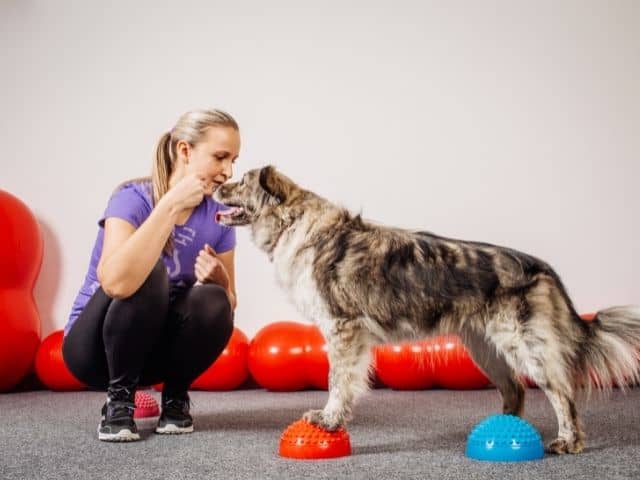
2. Jobs in welfare and animal protection
About the field: Wildlife and rehabilitation carers play a vital role in our community. They are on call to help our native wildlife of all shapes and sizes, from kangaroos to reptiles and birds, during times of need or crisis – whether they be singular incidents or during environmental emergencies such as bushfires. Park Rangers and Wildlife Rangers are responsible for the protection of both wildlife and their environment. The responsibilities of a ranger vary depending on their role. An example of their duties include managing wildlife control programs, snake removal and relocation, feral animal management, assisting with research of endangered and threatened animals, native animal education, wildlife crime management and dog and cat control in urban areas.
Roles available: Wildlife nurses, wildlife carers and animal fauna rehabilitation workers, conservation workers, sanctuary carers, sanctuary management, park rangers, wildlife rangers, and positions within a local council such as shelter or pound carers and managers.
Best career/education pathway: ACM20121 Certificate II in Animal Care or ACM30122 Certificate III in Animal Care Services (formerly ACM30117 Certificate III in Animal Studies) with a focus on Native Wildlife Rehabilitation, or a Certificate III or IV in Captive Animals, along with extensive volunteering within the field. If you are based in Perth you can gain essential experience and knowledge by completing AVT’s ACM20121 Certificate II in Animal Care (Exhibited Animals).
Where can I get a job? There are many wildlife sanctuaries and rehabilitation centres around Australia that offer both paid and volunteer positions. Careers in industry or government and in Parks/Reserves/Sanctuaries are available. With further education, this may progress into the fields of research or a career as a Biologist.
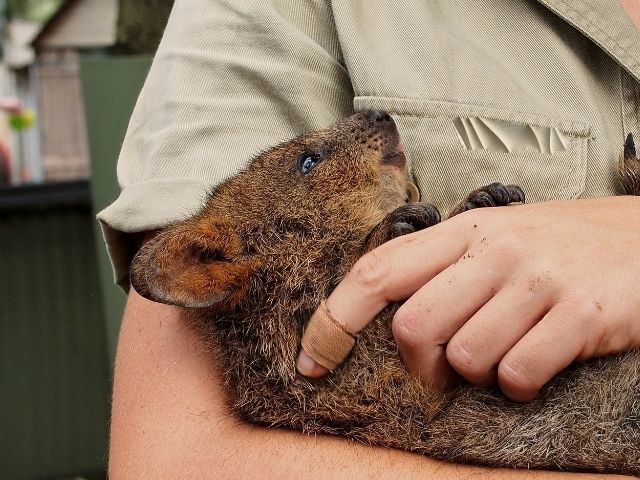
3. Service animals
About the field: Animals such as dogs and horses provide vital service roles, from helping those with disabilities, to assisting within the medical field and to the protection of our safety and way of life. These animals require the highest standard of care and training.
Roles available: Trainers, carers and handlers of animals in a range of areas including animal-assisted therapy and law enforcement. There are a variety of roles in dog and horse handling and care working for government agencies including the Military (e.g. Australian Army), Police Force, Customs detection, Department of Agriculture and Water Resources, Drug detection squad and Search and Rescue.
Best career/education pathway: Obtaining a career working with service animals is highly competitive. Studying to become a Veterinarian, Vet Nurse or Animal Trainer can broaden your prospects of entering a career working with service animals. If joining the police force or military may sound appealing to you, this is always an option. Guide Dogs Australia requires volunteer Puppy Raisers which may be something that interests you.
Where can I get a job? There are many charities dedicated to raising service dogs such as the Delta Society or Guide Dogs Australia. Alternatively, in law enforcement, you can seek a position in the Australian Army, Air Force Security, Royal Australian Airforce, Military and State Police Departments.
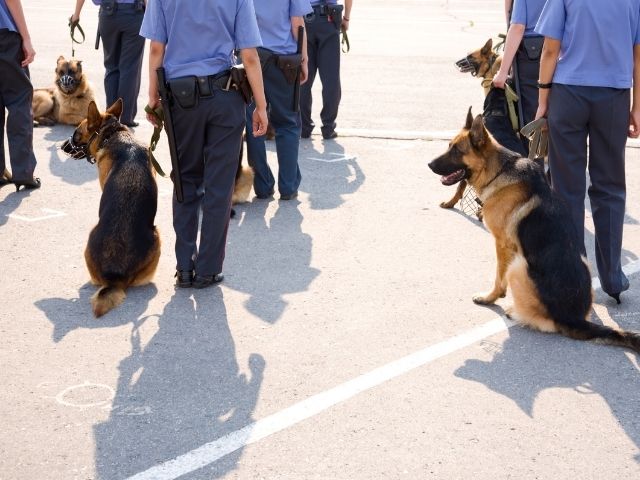
4. Retail outlets such as Pet and Feed Stores
About the field: The pet retail industry is ever-growing, and requires highly trained staff with extensive knowledge and skills in animal handling, nutrition and healthcare products.
Roles available: Retail Assistants and Retail Managers in pet shops, feed stores and aquarium stores. More casual roles also exist for stands and stalls at animal expos and dog and animal shows.
In these roles, you would be expected to give expert advice to customers with regards to a range of areas such as animal nutrition, grooming and general healthcare. There are also other roles involving sales and customer service working for pet food companies, the pharmaceutical industry and medical equipment wholesalers.
Best career/education pathway: ACM20121 Certificate II in Animal Care or Certificate II in Retail, along with voluntary work experience, will put you ahead of other applicants in another competitive field. Experience in customer service and management roles outside the animal industry will also be helpful.
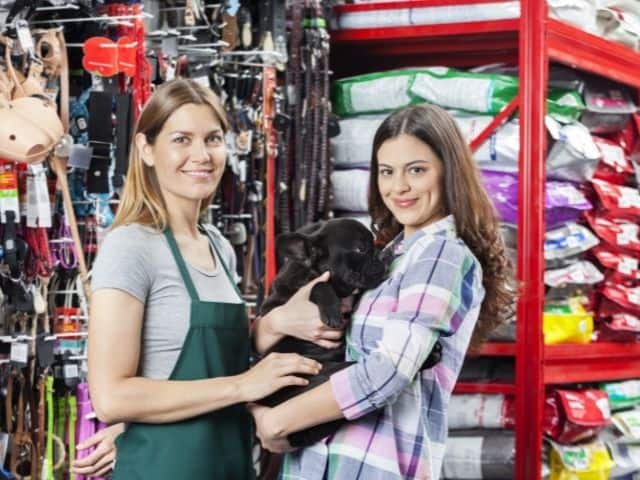
Where can I get a job? There are many large retail chain stores as well as private small business pet shops that stock pets and products for cats, dogs, large animals, fish and exotics such as rabbits, reptiles and amphibians. Other areas that might interest you are pet food companies and warehouse distribution centres.
5. Farming or commercial animal operations
About the field: In this field, many people are working towards helping Australia develop humane and efficient farming and commercial businesses. A career in this area might see you working within the Agriculture industry, enhancing the nutrition and health care of our production animals (including aquaculture/fisheries, meat, egg and dairy industries).
Roles available: You could work on farms and stations, for example, as a farmhand, machinery operator or helping to muster cattle, or in agribusiness and livestock consulting. You could also work for the Australian Government in quarantine and import/exports industry.
Best career/education pathway: Specialised Agriculture and Farm Management schools and private internships are available around the country. A veterinary qualification will also be helpful. Volunteer work experience positions within farms and stations are also highly recommended. If you are just starting your career, a qualification in Animal Care or Animal Studies will provide foundation skills for working with animals.
Where can I get a job? Working with animals on farms, stations, or other intensive production facilities. Jobs are available within abattoirs and government/quarantine (AQIS) facilities.
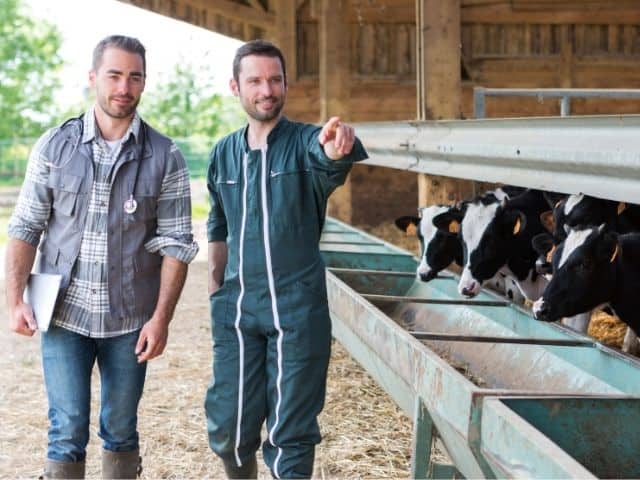
6. Zoos and conservation
About the field: A zoo is an exciting and fulfilling area to work in with the possibility of working with a variety of exotic, zoo and wildlife animals, all while contributing to the conservation efforts and enrichment of their lives!
Roles available: You could be working closely with the zoo animals as zookeepers, as experts in breeding or conservation programs, or as veterinarians, veterinary nurses or animal assistants. You may find yourself in a research role, such as jobs as biologists, ornithologists, herpetologists or horticulturalists (and the list goes on!)
Best career/education pathway: Completing a ACM20121 Certificate II in Animal Care (Exhibited Animals) is a great place to start, and you can go on to the Certificate III or IV in Captive Animals or ACM40418 Certificate IV in Veterinary Nursing will benefit you in this very competitive field. A large amount of dedication to volunteering and practical work experience will be required. You may be interested in completing a university degree in Biology, Veterinary Medicine, Environmental Science or Conservation.
Where can I get a job? There are many zoos, aquariums and wildlife sanctuaries across the globe. Both overseas and locally, there are endless volunteer and work positions in welfare and humanitarian organisations and charities. There are also various government and conservation councils throughout Australia as well as environmental work within the mining industry and related sectors. Learn more about working in a zoo here.
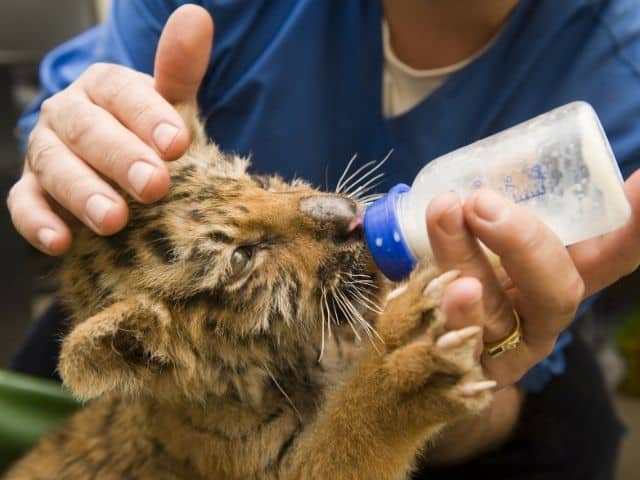
Suggested reading
If you are looking for jobs with animals in Perth, or anywhere else in Australia here’s a few more articles we recommend:-
- Getting Started – what is the the next step?
- Starting out – deciding what career path is for you!
- Qualifications Overview – what qualifications are available at AVT
- High school students and graduates – what options are available to you!
- Advice for high school students seeking a career in veterinary nursing – Choosing the right subjects for your pathway to veterinary nursing
Start your dream career!
Choose a course
Follow your passion and get a dream job!
About Our Courses
Choose from our range of courses
On-Site
ACM20121 Certificate II in Animal Care (Exhibited Animals)
Study at Landsdale Farm
Exhibited Animals at Landsdale Farm
On-Campus
ACM20121 Certificate II in Animal Care (VETDSS)
About Our Schools Program
VETDSS for High School Students
On-Campus
ACM20121 Certificate II in Animal Care (Vet Nursing Pathway)
About Vet Nurse Pathway
